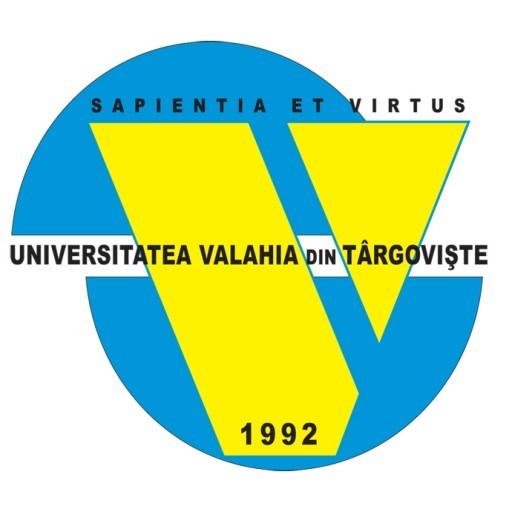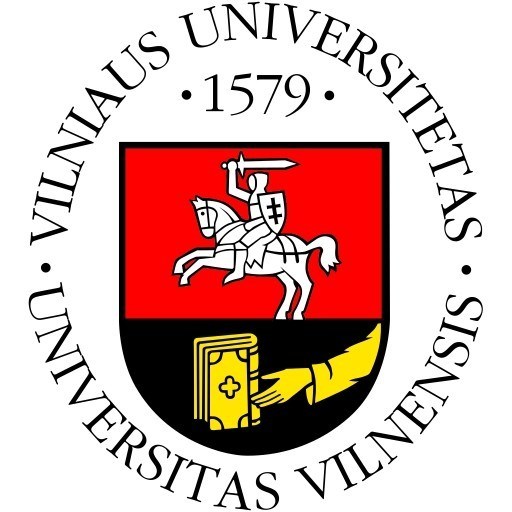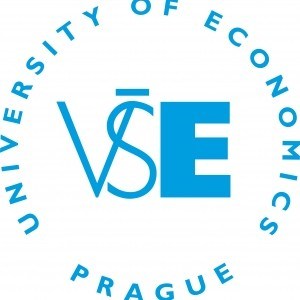Photos of university / #unigoettingen
PlantHealth - European Master Degree in Plant Health in Sustainable Cropping Systems is organised by a consortium of six universities from four European countries: Montpellier SupAgro, Agrocampus Ouest and AgroParis Tech (France), University of Göttingen (Germany), University of Padova (Italy) and Universitat Politècnica de València (Spain). These universities are highly proficient and experienced in teaching courses on general and specific aspects of Integrated Pest Management (IPM). In addition, all partners have an excellent reputation in research on various fundamental and applied aspects in plant health management. They keep strong links with enterprises of the plant protection sector and research institutes in Europe.
Universitat Politècnica de València is the coordinating institution of the PlantHealth Consortium.
Plant health management is a key subject of global development with regard to food safety, food security, and environmental preservation. With the increasing globalisation and climate change, new diseases and pests threatening agricultural production will occur and have to be tackled. In many parts of the world, plant protection products are not used according to advanced regulatory and safety standards. A key issue is the need to take into account the population dynamics of pests, pathogens or weeds in the context of the whole agroecosystem, including beneficial organisms, and the impact of the cropping system. The development of safe crop protection methods requires the education of highly skilled professionals for crop protection management in a sustainable agriculture in the developed countries as well as in the developing world. This is the core mission of the European Master's Degree in Plant Health in Sustainable Cropping Systems.
PlantHealth represents an innovation in its interdisciplinary focus, giving clear priority to complex research areas and global policy issues. A distinctive and important feature of the consortium is the emphasis on applied research and on teaching topics that are applicable in plant health management.
PlantHealth provides students with an attractive and innovative programme that will allow them to develop the ability to see plant health in a broad context with a focus on sustainability, taking into account all relevant agronomic factors such as plant variety, nutrition, soil tillage, crop rotation, etc. Students will obtain the skills and knowledge of advanced mycology, virology, entomology, nematology, and weed science in order to efficiently analyse or diagnose biotic and/or abiotic constraints in productivity of sustainable cropping systems.
Universitat Politècnica de València is the coordinating institution of the PlantHealth Consortium.
Plant health management is a key subject of global development with regard to food safety, food security, and environmental preservation. With the increasing globalisation and climate change, new diseases and pests threatening agricultural production will occur and have to be tackled. In many parts of the world, plant protection products are not used according to advanced regulatory and safety standards. A key issue is the need to take into account the population dynamics of pests, pathogens or weeds in the context of the whole agroecosystem, including beneficial organisms, and the impact of the cropping system. The development of safe crop protection methods requires the education of highly skilled professionals for crop protection management in a sustainable agriculture in the developed countries as well as in the developing world. This is the core mission of the European Master's Degree in Plant Health in Sustainable Cropping Systems.
PlantHealth represents an innovation in its interdisciplinary focus, giving clear priority to complex research areas and global policy issues. A distinctive and important feature of the consortium is the emphasis on applied research and on teaching topics that are applicable in plant health management.
PlantHealth provides students with an attractive and innovative programme that will allow them to develop the ability to see plant health in a broad context with a focus on sustainability, taking into account all relevant agronomic factors such as plant variety, nutrition, soil tillage, crop rotation, etc. Students will obtain the skills and knowledge of advanced mycology, virology, entomology, nematology, and weed science in order to efficiently analyse or diagnose biotic and/or abiotic constraints in productivity of sustainable cropping systems.
Educational organisation
Courses take place in two different countries (at least one year in each country). A student will obtain 60 ECTS in the first year university and the other required 60 ECTS (second year) in another university of the consortium.In the first year, or M1, students must select between Universitat Politècnica de València (Spain) or University of Göttingen (Germany). The M1 phase offers common education to deliver the same basis of knowledge to all the students and consists of compulsory modules on fundamental aspects in crop sciences, crop protection, population biology, molecular biology, and statistics. All the M1 courses are taught in English.
In the second year, or M2, students will choose a hosting university from the PlantHealth Consortium which necessarily must be located in a different country from that of the M1. Students will have the chance to specialise in particular topics of their interest to get a deeper knowledge in well-defined fields of integrated pest management in different agroecosystems across diverse climatic zones. M2 courses are taught in English at all partner universities, except at the French universities, where the language of instruction is French. All students will receive language courses to promote their academic success and facilitate their social integration.
The last semester will be devoted to the Master's thesis.
Fields of specialisation developed in each M2:
Universities: Specialisation
French universities (Montpellier SupAgro / Agrocampus Ouest / AgroParis Tech): Tropical horticulture and temperate vegetable crops
University of Göttingen: Temperate crops, arable crops and crops for energy
Universitat Politècnica de València: Mediterranean crops in orchards and greenhouses
University of Padova: Temperate fruit crops, ornamental plants and landscape
Study abroad unit(s)
Participants spend the first year at Göttingen or Valencia. In the second year of the programme, they have to change universities and may also select the universities in France or Padua.Forms of assessment
The Master's programme consists of modules, mostly with three to six credits. The Master's thesis is 24 credits, the colloquium six credits. At the end of the semester, each module is completed with an oral or written examination or a seminar presentation or a written report.Course objectives
The PlantHealth programme provides students access to the best research-based teaching programme on sustainable plant health management in Europe. A distinctive and important feature of the Master PlantHealth is the emphasis on applied plant health management.Specific objectives of the programme include:
- Educating young professionals in basic and advanced aspects of plant health management in a diversity of crop production systems and various regional/climatic situations following principles of sustainability
- Exposing students and scholars to the different realities of crop production systems and available environmentally friendly means of crop protection according to regional specificities
On completion of the PlantHealth Master's degree, graduates will be able to:
- Diagnose and identify plant health problems
- Analyse the causes of these problems and evaluate their environmental, economic, and social consequences
- Conceive technically adapted, economically viable, socially acceptable, healthy and environmentally benign solutions, meeting the requirements of sustainable cropping systems
- Apply research methods, instruments, and tools appropriately
- Use their knowledge and skills in a wide range of agricultural contexts, and transfer the scientific advances to a wide range of projects and actors at international level
Language requirements
Applicants whose first language is not English must provide proof of their English skills. The following internationally recognised tests and levels are accepted:a) Cambridge Certificate in Advanced English grade "B" or better
b) Cambridge Certificate of Proficiency in English grade "C" or better
c) International English Language Testing System (IELTS) 6 points or better
d) At least 550 points in a paper-based TOEFL Test of English as a Foreign Language
e) At least 220 points in a computer-based TOEFL Test of English as a Foreign Language
f) At least 80 points in an Internet-based TOEFL Test of English as a Foreign Language
g) UNIcert level III
h) C1 certificate of CEF (Common European Framework)
The language test certificate should be no more than two years old at the time of application. Students with two years of study or work experience in an English-speaking country within the past three years at the time of application do not require proof of English language proficiency.
Academic requirements
Candidates must have completed a first-cycle degree (academic BSc degree) with a good grade in a discipline of relevance to Plant Health, e.g., in Agriculture or Biology. Please contact us if you are interested in studying Plant Health but are not sure whether your educational background is relevant.The following criteria will be taken into consideration:
- academic excellence: overall mark and quality of first degree
- academic potential, based on the time spent on obtaining the first degree and the manner of conducting studies
- motivation to study the Plant Health programme (including the applicant's expectations)
- language abilities
- work experience in related fields
- experience of having worked or studied abroad
- personal competencies and extracurricular activities relevant for successful participation in the Plant Health programme, such as the ability to work and learn in an interdisciplinary environment,
- academic and, if possible, professional references
For details, please see: http://www.planthealth.upv.es.
Want to improve your English level for admission?
Prepare for the program requirements with English Online by the British Council.
- ✔️ Flexible study schedule
- ✔️ Experienced teachers
- ✔️ Certificate upon completion
📘 Recommended for students with an IELTS level of 6.0 or below.
Enrolment fees
Enrolment fees are included in the overall fee which has to be paid to the Plant Health consortium administration office. In Göttingen, fees include a prepaid semester ticket that entitles students to use regional trains free of charge within the federal states of Lower Saxony and Bremen, as well as city buses. Students also receive discounts for cultural events. Meals and drinks are also available at reduced prices at all university canteens.Costs of living
The average cost of living in Göttingen is modest compared to other major university cities in Germany. Currently, expenses for accommodation, food, health insurance, and books reach approx. 700-750 EUR per month. Please note that fees for health insurance may vary according to age. Living expenses might be slightly higher.Job opportunities
The university supports students in finding part-time jobs in local industries and businesses. A number of student jobs are also available at the university. Please note that restrictions may apply with your scholarship or work contract.Funding opportunities within the university
ERASMUS MUNDUS (EM) scholarshipsEM scholarships are available for third-country students and students from outside the EU countries. Other scholarships are available for EU students.
The PlantHealth Commission will recommend the best applicants for EM scholarships. Grant holders are selected according to academic potential and in observance of geographical criteria determined by the European Commission. For further information, please see:
http://www.planthealth.upv.es.
http://www.planthealth.upv.es/general_information
Arrival support
The International Office provides a complimentary pick-up service ("Buddy Exchange Service") from the Göttingen railway station to the accommodation. German students help newly arrived students to adapt to the university and the city during their first weeks. There is also an introduction week for new international students, which provides valuable information about Göttingen and the university.See:
http://www.uni-goettingen.de/en/49307.html
http://www.uni-goettingen.de/en/196392.html
Services and support for international students
The International Office assists international students with all administrative questions regarding their stay in Germany, e.g., enrolment, visa, foreigners' registration office, health insurance, and financing of their studies. Furthermore, it features a broad cultural programme, e.g., international cultural evenings, language workshops, theatre courses, films, dance classes, theatre, and opera visits. Trips to various tourist destinations in Germany are offered throughout the year.See: http://www.uni-goettingen.de/en/48483.html
Accommodation
The International Office, in collaboration with the student services organisation ("Studentenwerk"), helps students find adequate accommodation. Many international students live in student residences. These have single apartments or shared apartments with individual rooms. There are also apartments available for couples and families with children.See: http://www.uni-goettingen.de/en/364086.html











